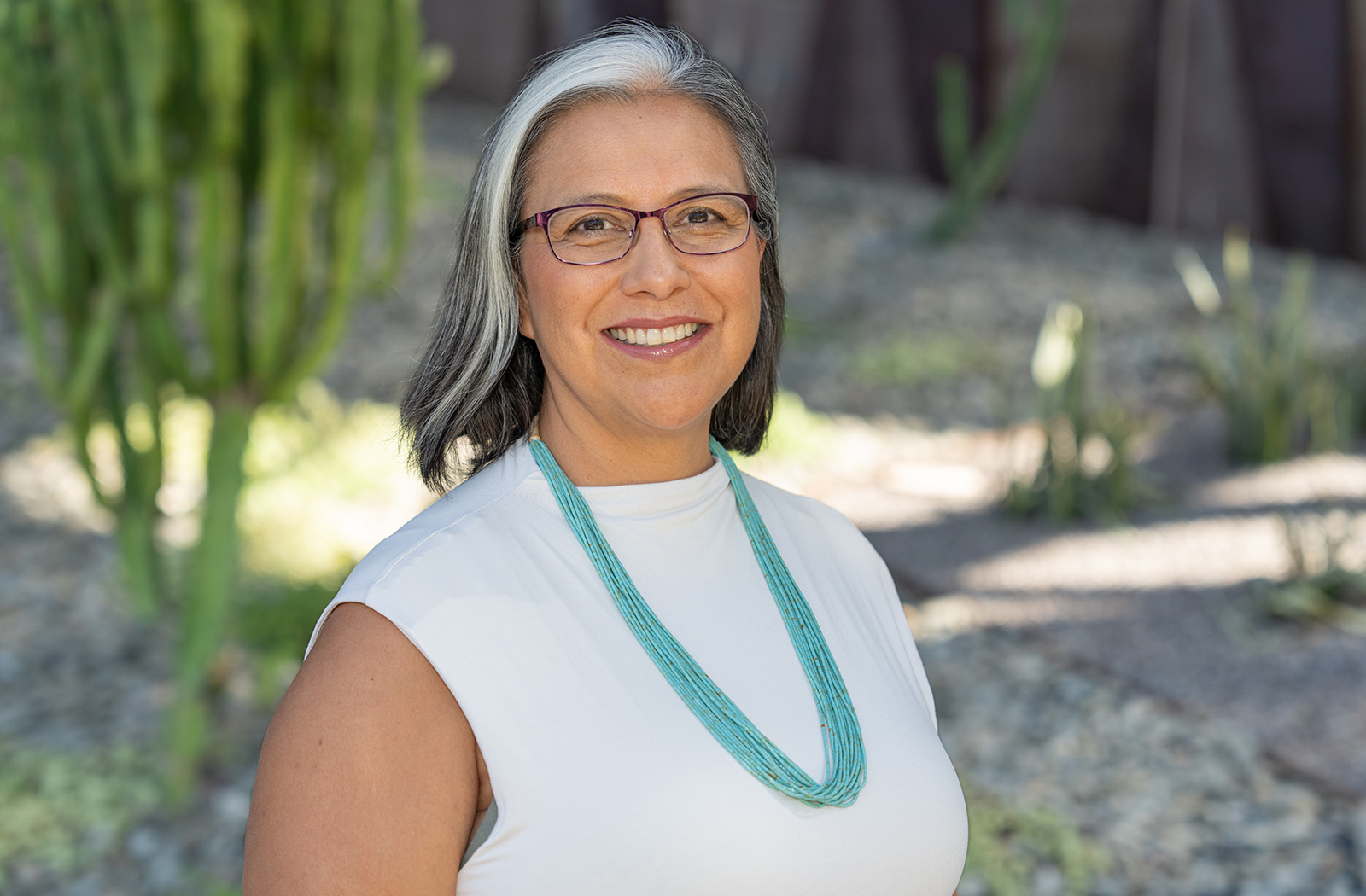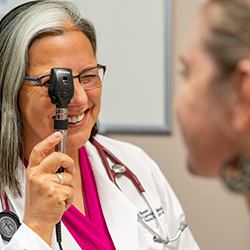
Women in Medicine and Science - Roberta I. H. Matern, MD

Roberta Matern, MD, has dedicated her career to patient satisfaction, community service and mentorship. And as the inaugural program director of the University of Arizona College of Medicine – Phoenix’s Family Medicine Residency – Payson, she is continuing to pursue each of those passions in service to those most in need.
“The overall health of the American population lags behind our fellow developed nations. Lack of access to basic primary and preventive care is a big contributing factor,” Dr. Matern explained.

Arizona currently meets just 39% of its residents’ primary care needs and must add 497 to 667 primary care physicians to eliminate its primary care physician shortage, according to data from the University of Arizona Center for Rural Health at the Mel and Enid Zuckerman College of Public Health. Access to primary care is markedly worse in the rural areas of the state where health care facilities, as well as providers, are limited — requiring people to travel longer distances.
“Sadly, I feel that family medicine is more and more boxed into just the outpatient arena. Rural America suffers from lack of primary care providers out in the trenches. A well-rounded family physician is ideal for working in rural areas — but they must be adept and willing to work beyond the outpatient clinic,” Dr. Matern said.
As the daughter of medical missionaries who served in Vietnam and Nepal, Dr. Matern is acutely aware of how essential it is to not leave anyone without care; and she embraces the value of full spectrum family medicine, which she practices and teaches. “I hope that in 10 years, I see more full spectrum family physicians taking up the call for the important work in rural areas,” she said.
The Family Medicine Residency – Payson, which welcomed its first cohort this summer, is one example of the U of A College of Medicine – Phoenix’s efforts to close that gap. Dr. Matern is proud to serve as the inaugural residency program director.
And through the role, Dr. Matern is not only helping treat the underserved, but she is influencing and inspiring the next generation of family medicine physicians to stay in a rural area to practice, as well. It is a role she relishes. “I am a huge fan of family medicine, and I hope my enthusiasm rubs off on my learners each time I work with them,” she said. “I am astounded, gratified and humbled that often, when I reach out for a consultation, the expert I find is a former medical student or resident whom I once taught.”
Dr. Matern also seeks to uplift fellow women in medicine and science. “I belong to various groups comprised of female physicians. We support and network, encourage and prod each other to stretch and reach for even better outcomes,” she said. “I especially find the support and practical advice for being a female faculty member while raising a family invaluable.”
A graduate of Mayo Medical School in Rochester, MN, Dr. Matern completed her residency in Family and Community Medicine at Maricopa Medical Center (now Valleywise Health) in Phoenix.
She has held numerous roles with the college — including director of the Family Medicine Clerkship and member of the Curriculum, Student Progress and Admissions Committees. In addition, she has taught in the Doctoring Program and the Faculty Development Fellowship.
Read more Women to Watch in Medicine and Science profiles
About the College
Founded in 2007, the University of Arizona College of Medicine – Phoenix inspires and trains exemplary physicians, scientists and leaders to advance its core missions in education, research, clinical care and service to communities across Arizona. The college’s strength lies in our collaborations and partnerships with clinical affiliates, community organizations and industry sponsors. With our primary affiliate, Banner Health, we are recognized as the premier academic medical center in Phoenix. As an anchor institution of the Phoenix Bioscience Core, the college is home to signature research programs in neurosciences, cardiopulmonary diseases, immunology, informatics and metabolism. These focus areas uniquely position us to drive biomedical research and bolster economic development in the region.
As an urban institution with strong roots in rural and tribal health, the college has graduated more than 1,000 physicians and matriculates 130 students each year. Greater than 60% of matriculating students are from Arizona and many continue training at our GME sponsored residency programs, ultimately pursuing local academic and community-based opportunities. While our traditional four-year program continues to thrive, we will launch our recently approved accelerated three-year medical student curriculum with exclusive focus on primary care. This program is designed to further enhance workforce retention needs across Arizona.
The college has embarked on our strategic plan for 2025 to 2030. Learn more.